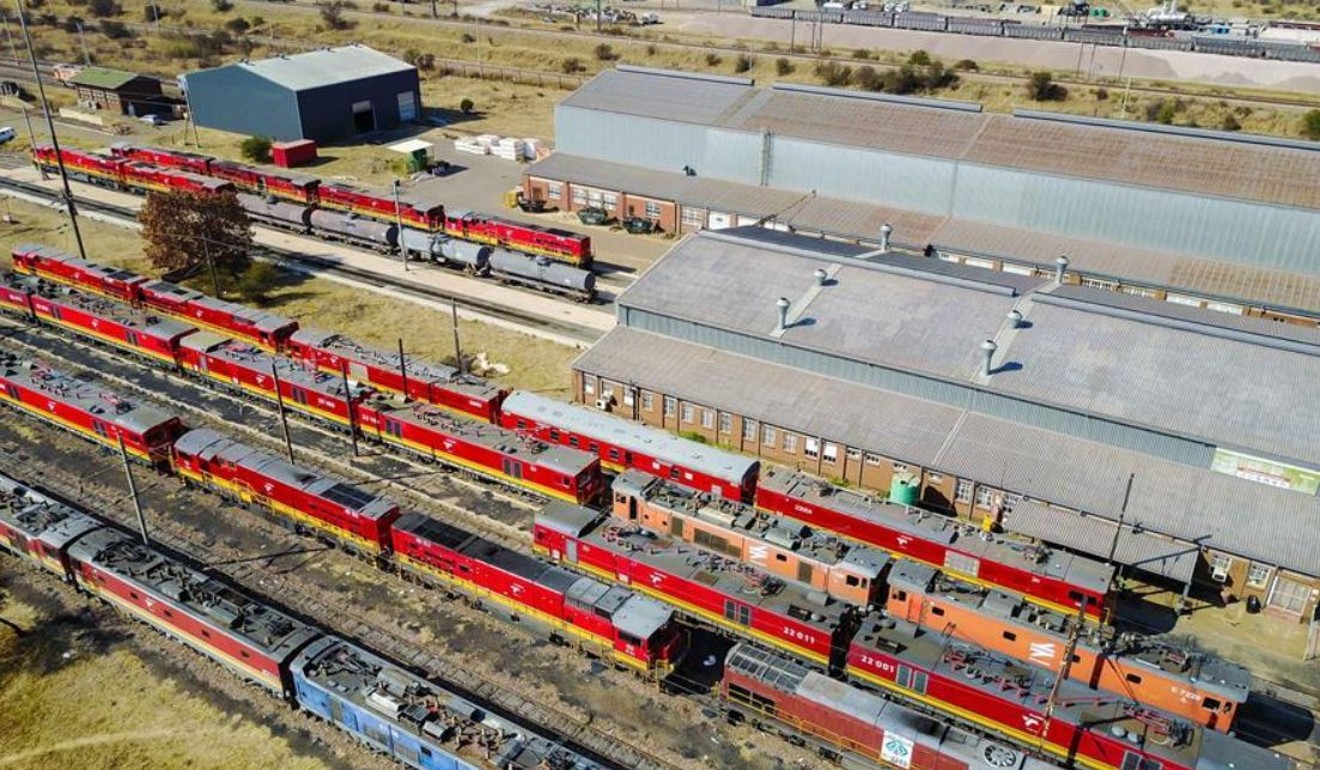
Chinese rail deal under scrutiny in South Africa ‘State Capture’ corruption probe
- Corruption inquiry examines how a deal was made for 1,064 Chinese locomotives
- Chinese firm said it was cooperating with South African authorities
A blockbuster inquiry into corruption in South Africa is examining a deal with a Chinese train company that blew out to US$3.75 billion.
It is also probing “success fees” allegedly paid to firms linked to a billionaire family that has been associated with the country’s scandal-plagued ex-president.
Justice Raymond Zondo has been overseeing the so-called State Capture Commission of Inquiry since last August.
The inquiry is probing corruption by business associates linked to Zuma, who “captured” key state entities such as the country’s rail network agency, Transnet and Africa’s largest electricity generator and distributor, Eskom.
In recent weeks, Justice Zondo’s commission has heard testimony from whistle-blowers inside Transnet about a large contract awarded to locomotive manufacturer China South Rail (CSR).
Among other excesses, South Africa ended up ordering – though not from a Chinese firm, in this case – locomotives that were physically too large to run on South Africa’s electric rail network.
Under particular scrutiny however was a deal for the construction of 1,064 Chinese locomotives in South Africa to modernise Transnet’s fleet.
The cost ultimately blew out from US$2.66 billion to US$3.75 billion.

Investigator Tshiamo Sedumedi said there was evidence “improper engagement” between Transnet and CSR as far back as 2011, when the two companies discussed an earlier tender for 95 electric locomotives.
Investigators cited leaked private emails that apparently breached South African law meant to ensure transparency in the tender process.
One email was from a former supply chain officer at Transnet to an official at CSR.
That email was said to describe contact between Transnet CEO Brian Molefe, who would later head Eskom, and CSR Zhuzhou Electric Locomotives Company about a tender on offer.
At the inquiry, a former strategic manager at Transnet also described how Molefe unilaterally rejected his team’s recommendation to buy Japanese locomotives designed for hauling coal, and instead favoured CSR, even though its locomotives were not entirely suitable for that purpose.
“[The CSR locomotive in question was] not designed for the coal line,” Francis Callard said.
“It was specified for general freight. In short, it was not suitable.”

The inquiry also heard how firms linked to an Indian immigrant family led by four brothers – collectively referred to as “the Guptas” who are friends with Zuma – were paid “success fees” and commissions for their roles in Transnet’s deals.
One transaction under scrutiny at the inquiry was for 93 million rand (US$6.2 million), paid by Tansnet to Trillian Capital Partners.
The Guptas through their lawyers have previously denied any wrongdoing but have also refused to attend the inquiry in South Africa.
Various media reports say members of the family have been living in United Arab Emirates.
The inquiry also heard that CSR also fell short of its contractual obligations to invest US$350 million in the South African economy as well as source 60 per cent of materials locally in South Africa to build the trains.
CSR merged with another Chinese state-owned entity China North Rail (CNR) to form CRRC, a Chinese state-owned holding company, after the two landed the lions’ share of Transnet’s tender.
CRRC is cooperating with South African authorities as the inquiry continues to probe corruption in other sectors.
“CRRC, the Chinese government and other law enforcement agencies are also investigating the allegations which were contained in leaked emails and we will cooperate with investigations in South Africa and China,” it said in a statement.
South Africa’s Department of Trade and Industry, said despite the local investment and material sourcing issues, CRRC had “committed (itself) to operate in compliance to the laws, rules and regulations of the Republic of South Africa”.

Transnet board chairperson, Popo Molefe (no relation to Brian Molefe), told the inquiry of “a sophisticated operation” to skim money off tenders.
“It starts off with people who are known to have served the country, who have the qualification, who have been proclaimed as great managers and corporate leaders,” he said.
“But these people, once they are there, take control of the mechanisms that (protect) against rampant corruption and irregularities in the business.”
Referring to the state of management of Transnet when he took over last year, he added: “We found an individual could sign off a contract for huge amounts of money ... without any reference to the board.”
However, the difficult process of returning funds to Transnet has begun. Molefe told South African media that CRRC had so far repaid US$42.6 million to Transnet.
This represents a 10 per cent advance payment that Transnet made in terms of its contract with CRRC E-Loco, signed in 2016.
CRRC E-Loco is a division of the amalgamated company that was formed when CSR and CNR merged.
The 12-year contract required CRRC E-Loco to provide maintenance on locomotives, including the contentious 1,064 package, provided by CSR and CNR.
Transnet is also seeking to recover money paid to the other parties involved in the tenders, including global consulting giant McKinsey and its partner, the Gupta-linked company Regiments Capital, which together received an estimated US$133.8 million in consulting fees.

